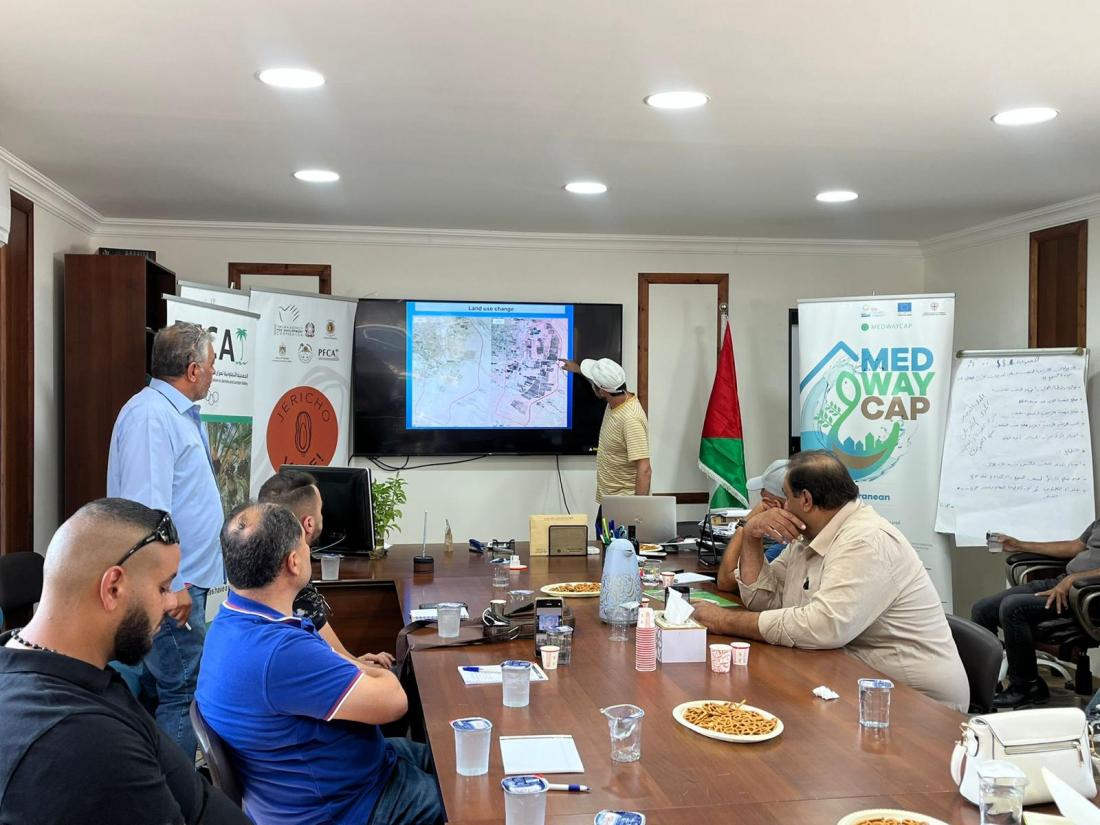MEDWAYCAP Palestine: Mutual Learning 2nd Meeting for Soil Analysis Results and Soil Characteristics in the Jordan Valley

A fruitful two-day Mutual Learning Meeting took place in Jericho, Palestine, where a broad selection of local stakeholders was brought together to discuss thoroughly soil analysis results and soil characteristics, made in the Jordan Valley, providing recommendations for improving soil health and for farmers' behaviour change toward reuse of non-conventional water resources (NCWR) in agriculture. This activity is part of raising awareness and generating interest and engagement from a wide range of stakeholders on soil analysis and characteristics in Jordan Valley.
The event, which took place in Dates Water Users Association- DWUA on 27-28 August 2023, witnessed the active participation of around 40 participants from various sectors who are interested in participating and being involved in this valuable meeting held in Jericho and organized by Palestinian Wastewater Engineer Group (PWEG), partner of MEDWAYCAP project.

Participants represented a wide range of backgrounds and sectors, including farmers seeking innovative solutions to their difficulties in agriculture, academia centers interested in getting knowledge and know-how, municipalities looking to provide residents with local quality services, and governmental authorities and ministries searching for innovative approaches and means that help farmers in agriculture and resilience in their lands.
The Meeting started with a welcoming by Mr Mohamad Qawasmi president of DWUA, and then an overview of MEDWAYCAP goals and objectives was presented by Eng. Monther Hind, Project Coordinator and General Director of PWEG. Eng. Hind shed light on the ENI CBC MED Program and its management by Region Sardinia, stressing the importance of incorporating innovative non-conventional water resources for irrigation purposes.

During the meeting, TIMESIS- an Italian company expert in pedology, agronomic and forestry sciences- represented by Prof. Michele D’ Amico, shares with participants valuable data, results and recommendations following a soil study and soil mapping including field and laboratory investigations and tests made in the Jordan Valley over the last three years shedding the light on best practices that could be helpful to farmers resist to soil salinity in Jordan Valley.
Throughout the event, onsite meetings were made with farmers on the site providing them with field recommendations on how to improve soil health enabling farmers’ behavior change toward the reuse of NCWR in agriculture.
In conclusion, the knowledge and experience shared during the event on soil analysis and characteristics in the Jordan Valley will contribute to the main objectives of the project namely involving best non-conventional practices in agriculture and irrigation.










